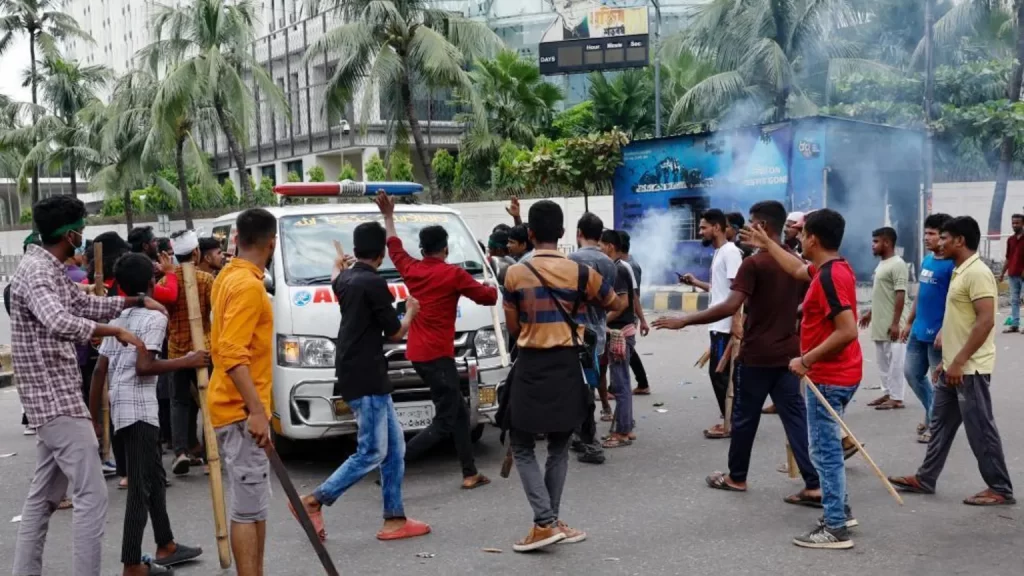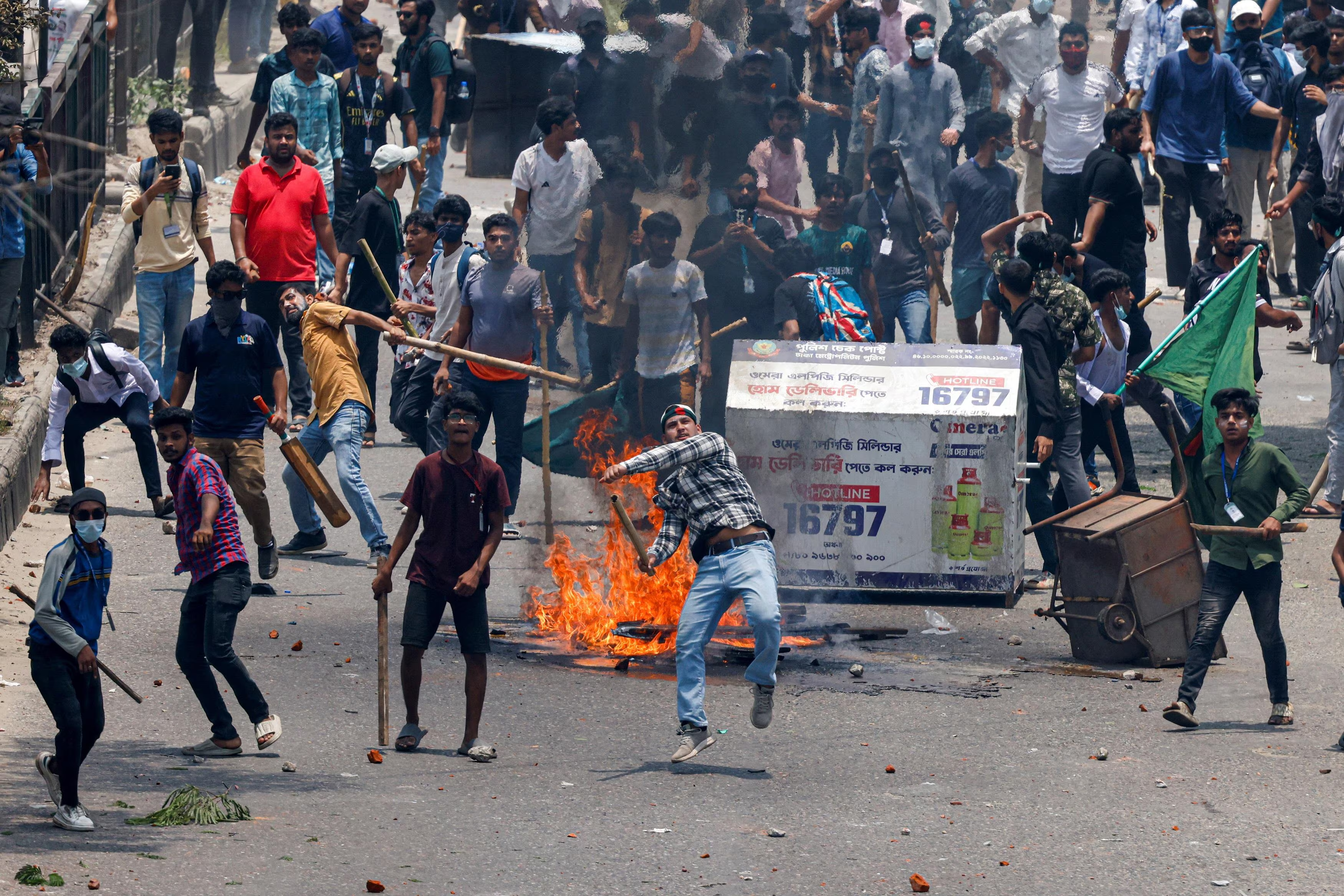DHAKA, Bangladesh – Violent clashes between police and anti-government protesters have left at least 23 people dead in Bangladesh, as demonstrators demand the resignation of Prime Minister Sheikh Hasina. The latest round of unrest comes as student leaders launch a campaign of civil disobedience against the government.

Police have deployed tear gas and rubber bullets to disperse demonstrators across the country, with approximately 200 people reported injured. The violence has spread beyond the capital, Dhaka, to northern districts including Bogra, Pabna, and Rangpur.
In response to the escalating situation, authorities have suspended mobile internet access in Dhaka, with some providers citing government orders. A Bangladesh Telecommunication Regulatory Commission official confirmed the suspension of 4G services in the capital, effectively cutting off mobile internet communication.
The government has imposed an indefinite curfew starting from 18:00 local time on Sunday. Thousands of protesters gathered in a main square in Dhaka, with violent incidents reported throughout the city. In some areas, supporters of the ruling Awami League have reportedly clashed with anti-government demonstrators.
Students Against Discrimination, a group leading the protests, has called for a nationwide disobedience movement. Their demands include Prime Minister Hasina’s resignation and a boycott of tax and utility bill payments. The group has also urged for a shutdown of factories and public transport.

The current unrest stems from protests that began last month over civil service job quotas but has since evolved into a broader anti-government movement. More than 200 people were killed in July’s violence, with many reportedly shot by police. In the past two weeks, security forces have detained around 10,000 people, including opposition supporters and students.
Prime Minister Hasina, who was elected for a fourth consecutive term in January in an election boycotted by the main opposition, faces a significant challenge to her leadership. While she has offered unconditional dialogue with student leaders, protesters have rejected her overtures.
The government’s response to the demonstrations has fueled further anger. Bangladeshi media reports that most of those killed in last month’s protests were shot by police, though the government maintains that police only fired in self-defense and to protect state property.
As tensions continue to rise, the Bangladeshi army chief, General Waker-Uz-Zaman, has met with junior officers to assess the security situation. The coming days are seen as crucial for both the government and the protesters, as the country grapples with its most serious political crisis in recent years.



